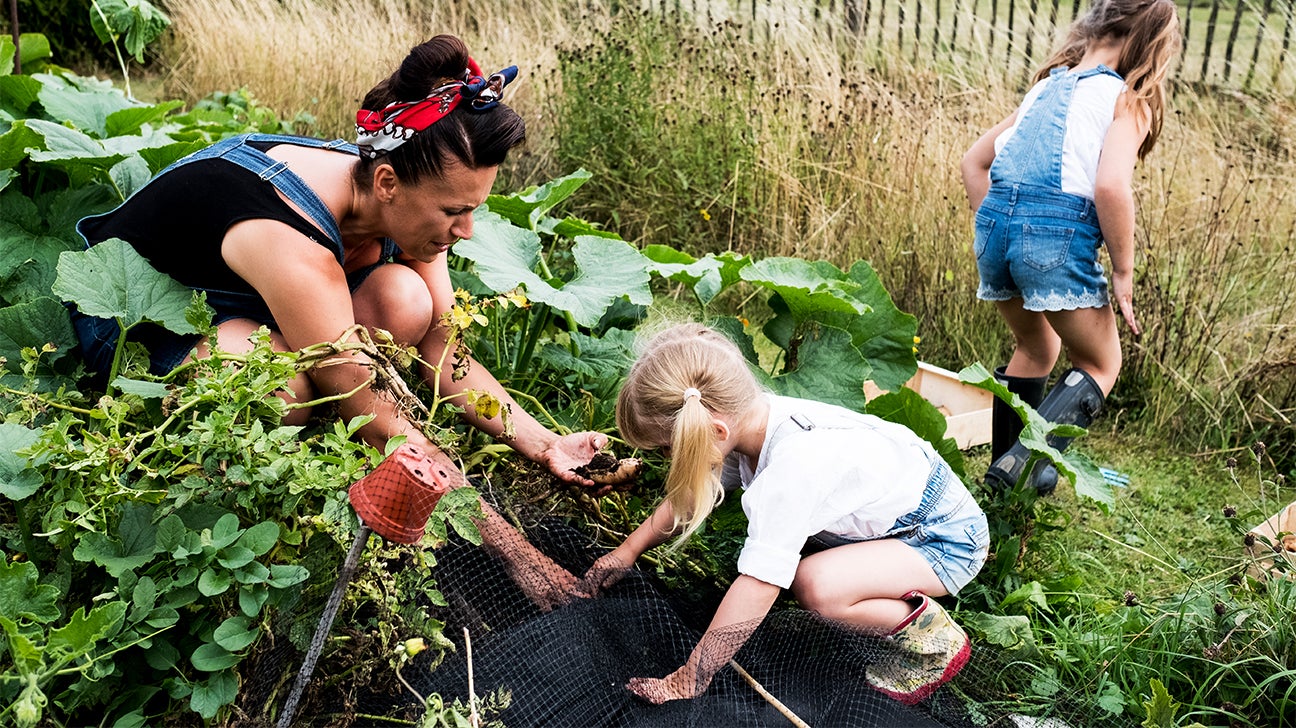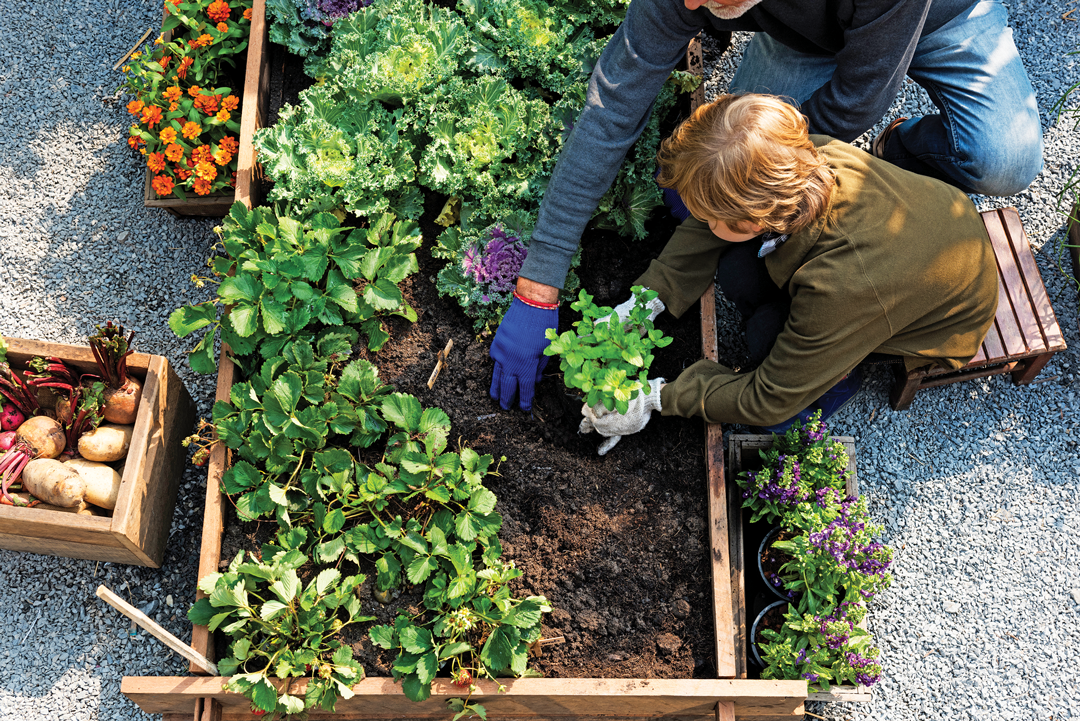Seasonal Gardening Tips: What to Plant and When for Best Results
Wiki Article
Unlocking the Advantages of Horticulture: A Detailed Check Out the Different Kinds and Their Effect On Well-Being
Checking out the multifaceted benefits of horticulture reveals a range of practices that dramatically boost individual wellness. As we examine these diverse gardening approaches, it becomes obvious that their effect can reverberate on individual, social, and environmental levels, prompting a closer look at exactly how these connections develop a cohesive narrative of all natural health.Kinds of Gardening
:max_bytes(150000):strip_icc()/garden-glossary-potting-getty-0623-ecf762deed2a43bca2a90183cb03da31.jpg)
Blossom gardening, one more prominent category, highlights the aesthetic allure of grown blooms. This kind can enhance landscapes and promote biodiversity by drawing in helpful pollinators. Herb horticulture includes expanding aromatic and culinary plants, contributing both to food preparation and natural solutions.
Container gardening deals flexibility, making it possible for individuals with minimal area to engage in gardening by utilizing pots and planters. This method is specifically prominent in city setups. Raised bed horticulture, on the other hand, entails producing elevated stories that improve dirt drain and access, making it easier for garden enthusiasts to handle their plants.
Finally, community horticulture fosters partnership amongst individuals in common spaces, advertising social interaction and collective responsibility. Each type of horticulture offers distinct functions and deals with different preferences, making horticulture a flexible task that can be tailored to private requirements and environments.
Mental Health Advantages
Engaging in various kinds of gardening not only yields tangible benefits such as fresh fruit and vegetables and stunning blossoms yet likewise uses considerable mental health benefits. Research study suggests that horticulture can be an effective tool for lowering tension, anxiousness, and clinical depression. The act of often tending to plants and growing a garden fosters a feeling of objective and accomplishment, which can boost total emotional health.Furthermore, horticulture urges mindfulness, as it needs people to concentrate on the present minute, whether it be growing seeds or supporting development. This mindfulness practice can result in lowered rumination and improved mood stability. The exposure to natural surroundings throughout horticulture has actually also been connected to boosted cognitive functioning and decreased sensations of fatigue.
Social communication plays a critical role in mental health and wellness, and community gardening efforts supply possibilities for people to get in touch with others, fostering a sense of belonging. The common experience of gardening can cultivate relationships and assistance networks, better boosting emotional durability.
Physical Health Benefits
Lots of individuals might not recognize that horticulture also provides substantial physical health and wellness advantages. Participating in horticulture tasks needs a series of physical motions, including bending, lifting, excavating, and planting, which collectively add to improved toughness, versatility, and endurance. These activities can enhance cardiovascular health and wellness by advertising this post a raised heart rate, consequently reducing the threat of cardiovascular disease.Additionally, horticulture can work as a moderate-intensity exercise, assisting individuals attain advised exercise levels. Studies suggest that routine involvement in horticulture can burn considerable calories-- around 200-400 calories per hour, relying on the strength of the jobs performed. Such calorie expenditure is useful for weight monitoring and total metabolic wellness.
In addition, direct exposure to sunshine throughout horticulture can promote the synthesis of vitamin D, which plays an essential function in preserving bone health and wellness and sustaining immune function. The act of horticulture commonly entails functioning with soil, which has been this link connected to possible mental and physical health advantages due to the existence of advantageous microorganisms.
Social Links Via Horticulture
The common aspects of gardening foster purposeful social links among individuals. Area gardens, particularly, offer as vivid centers where individuals from varied backgrounds collaborated, growing not just plants but additionally partnerships. These common spaces urge partnership, allowing people to trade understanding, skills, and resources, consequently improving their horticulture experience and promoting a sense of belonging.Interaction in gardening activities typically results in the development of relationships and assistance networks. Participants often unify for usual objectives, such as planting seasons, harvest events, or instructional workshops, which reinforce interpersonal connections and produce a sense of area. Such interactions can alleviate feelings of isolation and boost psychological health, as individuals locate companionship and sociability in common undertakings.

Environmental Impact of Horticulture
Gardening considerably adds to ecological sustainability in multiple means. Among the most remarkable benefits is the enhancement of biodiversity. Home yards offer vital environments for various varieties, consisting of pollinators such as bees and butterflies, which are essential for community health. By growing diverse plant varieties, gardeners can develop a well balanced setting that supports both vegetation and animals.original site

Additionally, gardens play an important role in water conservation. Well-planned landscapes, consisting of indigenous plants and xeriscaping, lower water usage and prevent runoff, thereby shielding neighborhood waterways from pollution.
Final Thought

The diverse kinds of gardening-- including vegetable, blossom, natural herb, container, and raised bed-- contribute to mental and physical health, foster social connections, and promote environmental sustainability. By involving in gardening practices, individuals can experience enhanced high quality of life while additionally sustaining area bonds and environmental health and wellness.
Report this wiki page